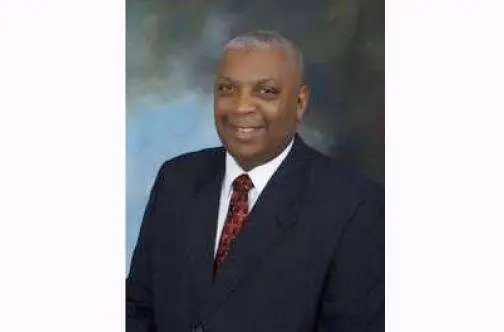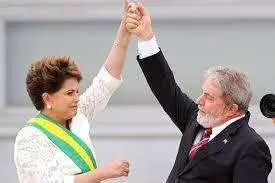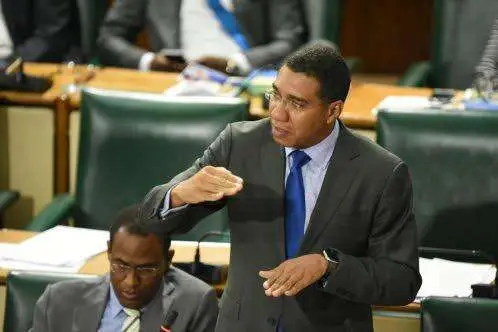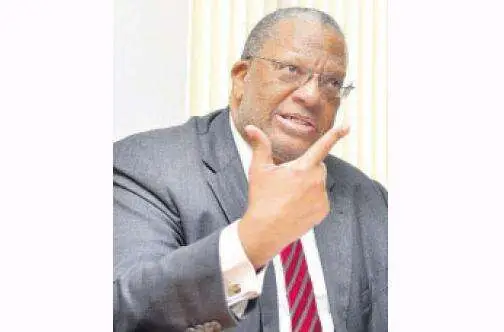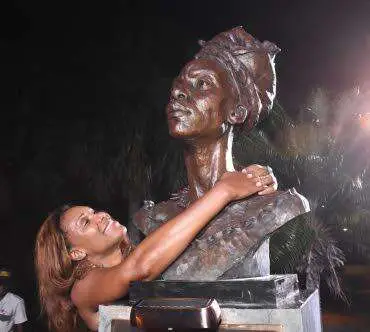
Corruption does not have to always be with us
You see, there are people who believe the function of the police is to fight crime, and that’s not true; the function of the police is for social control and protection of property — Michael Parenti
On June 18, 2018 a pre-arranged and choreographed event occurred at the Emancipation Park for which we should all be proud. The Rotary Club of Kingston had an unveiling ceremony of the bust of all seven of our national heroes. These statues are located along the eastern corridor of the park, and If you have not gone to view them, then you should.
The ceremony was a small one and did not attract the attention of most of the 500 people I estimated at the park — the majority of whom were exercising in one form or another. Nonetheless, during the ceremony, a spontaneous and very un-choreographed event occurred for which I felt proud to be a Jamaican. While jogging, I noticed that all the people ahead of me stopped and stood at attention. The people who were sitting also stood. I stopped and followed suit, not sure what was happening. I then heard the national anthem. It was being played at the unveiling ceremony. While I could not see what was happening behind me, for the duration of the playing of the anthem, no one walked or ran past me. There was this sense of national pride for the playing of the anthem. The park, which would have been buzzing at 7:00 pm, was quiet.
The cynics may be unimpressed and retort that this is how we should be acting anyway. But the fact is we have not always acted like this. And, truth be told, this may not be the norm. However, something may have changed, and we can engage in lengthy debate about what has contributed to this level of exhibited respect and pride.
One possible explanation is that we have heard our anthem played so frequently on the international stage that we unconsciously feel compelled to show respect for the achievements that have filled us with pride for the nation’s quintessential symbol. And some sociologists will argue that there is another factor at work — social control.
Social control within sociology refers to the many ways in which our behaviour, thoughts and appearance are regulated by the norms, rules, laws and social structures of society. The social control demonstrated at Emancipation Park, in which so many individuals decided to show respect for the anthem, would be described as informal, so that if a few individuals did not conform, there would have been some form of informal sanction.
I want to discuss the current outrage surrounding the Petrojam scandal within the context of social control. The abuse of political power for personal gain goes back to antiquity, as does the debate over whether corruption is a necessary cultural vice in a country’s development or a cancer that must be obliterated for a society to progress. But there is a discernible global trend to expose and crush corruption. There have been protests in several countries against corruption, including Brazil, Guatemala, Burkina Faso, South Africa, Romania, South Korea. In some of these cases the protests have forced impeachment or resignation of heads of State.
The World Economic Forum (WEF), in 2015, asserted that, “It is now universally accepted that corruption poses critical challenges to economic and social development and diverts resources from legitimate causes beneficial to society at large. Corruption also restricts millions of people on a daily basis in their enjoyment of human rights and fundamental freedoms, contributing to the perpetuation of poverty and hindering economic opportunity.”
In addition to the international trend of denouncing corruption from the populace, there is overwhelming empirical evidence to indicate that State-owned enterprises like Petrojam tends to be vehicles of corruption. Researchers have argued that such corporations are notorious for their lack of efficiency, vulnerability to political abuse, and draining of State revenue.
An article entitled ‘Political capture in the Petrobras corruption scandal’ clearly indicates that kickbacks and other bribery practices are the norms in large State-owned enterprises. The Petrobras scandal involved Brazilian presidents Luis Inacio Lula da Silva and Dilma Rousseff, the board of directors, and lower level employees who were able to amass millions of dollars. It also involved large multinational banks like HSBC and Royal Bank of Canada.
At this time, we have no idea of the extent or scope of the Petrojam scandal and how high up or how low down it goes. However, the Leader of the Opposition Peter Phillips has used personification to describe the scandal as the mother of all scandals and taken a pious position on the issues. In June, Government Senator Matthew Samuda demanded that Dr Wykeham McNeill tell the country whether two of his relatives raked in millions of dollars from the Tourism Ministry while he was the portfolio minister. This allegation later turned out to be false. The unintended point that Samuda was making is that there are corrupted counterparts on both sides of the political aisle. If the People’s National Party (PNP) use #Wheatley, the Jamaica Labour Party (JLP) can use #Paulwell.
Jamaicans need to accept that the root of corruption is apolitical. It is an equal opportunity class of problem perpetuated by a political elite operating within a culture of impunity. According to one joke, don’t steal, don’t lie, don’t cheat, the Government hates competition.
If social control, within sociology, is as defined earlier, what is the social control, formal or informal rule, that regulates what the politicians do? When Prime Minister Andrew Michael Holness made his inaugural speech on March 3, 2016, there was a pregnancy of expectation that transparency and a trend away from corruption with impunity would emerge. There was also the expectation of moral leadership.
However we assume the best of our leaders, we can debate whether Andrew Holness is a moral leader or not. There is, notwithstanding, no debate in the realities of political life which require that he be a rational actor who is cognisant of his political survival. Holness, in his inaugural speech, did say the changes he envisions he cannot do it alone, and he is right.
One of the reasons that I will posit that the Petrojam scandal is not waning is that there is a subtle change in our social norm. We have spent a lot educating our future generation, the fundamental fabric of our society, on reducing corruption. Schools and university curricula have changed to include a focus on ethics and ethical behaviour. National Integrity Action has used formal and informal methods to regulate social control. The churches and other civil society have played their part. It has been extremely important that we create a culture of integrity. These institutions now play an important role in determining how Jamaica deals with corruption.
Samuel Huntington, a revered political scientist, argued that the strength of a country’s institutions will chart a path towards growth or decay. One of the institutions that has an opportunity to contribute more towards changing corruption is the media. My appeal to the media: Please conduct some investigative journalism into this issue and others and don’t just be reporters.
The WEF argues that for any society to be successful at curbing corruption and sustaining a culture of integrity, there must be mechanisms in place that operate as a check on thinking or behaviour that would represent a backsliding to the previous corrupt ways of doing business in the public or private sectors. Such monitoring and oversight help to positively reinforce integrity and professionalism, while holding accountable those who choose to violate the positive societal norms. In order to create such institutions, however, it is up to the public to demand accountability from their political leaders, civil servants and private sector actors.
The Petrojam scandal requires accountability. It requires that our institutions and the public push, cajole, and demand accountability from the prime minister. Let us help Prime Minister Andrew Holness to be a moral leader which is what he suggested in his inaugural speech. It is in our national interest. He cannot do it alone. This is the social change and social control that is required to be transformative.
We should make it uncomfortable for politicians, PNP or JLP, civil service, private enterprise, and police to operate without integrity, transparency and objectivity. This is not utopian. It is possible!
Professor Paul Golding is dean of the College of Business and Management, University of Technology, Jamaica. Send comments to the Observer or pgolding@utech.edu,jm.

